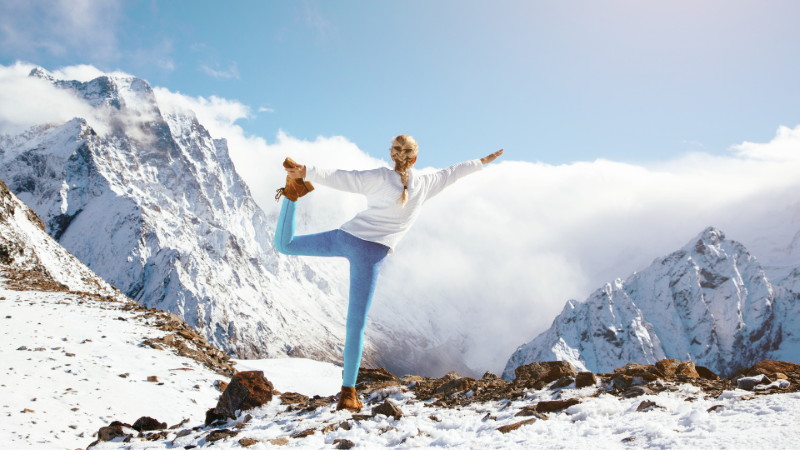The temperature has started to drop, and the woolens are being pulled from their summer resting place as the last of the leaves fall from the trees, and Winter creeps in.

A time of dark mornings and darker nights, of scraping frost from your windscreen or standing huddled in your wellies and fleecy coat waiting for a bus and cursing the need to work. But work we must and to do so we must stay healthy. With extremes of temperature this can be challenging.
When thinking about winter health it is important to look after yourself by following a few simple recommendations.
Stay Warm – Lowered temperature due to changes in the weather can impact your body’s capacity to protect itself against infections and viruses. To help combat this, it is advisable to stay warm. One effortless way of doing this is to wear warm clothes. Lots of thin layers of clothing is recommended rather than one thick one. Clothes made with wool or flocculent synthetic fibers are preferrable. Cotton is effective but only if it remains dry. When leaving home wear, a scarf, gloves, and a hat (approximately 10% of your body heat is lost via your head).
Although more difficult with the current cost of living crisis in the UK, it is advisable to ensure the rooms you use during the day are kept between 16 and 21 ºC, and your bedroom is above 18 ºC. Setting the timer on your heating can help reduce your costs and using blankets and duvets when sitting in a chair or when you are in bed, can help keep you warm. You could be eligible to financial assistance in winter, so it is always best to call the local council or benefits office and enquire.
Try to ensure you are consuming plenty of hot drinks and eat at least one hot meal a day.
Stay Active – we all know that exercise is good for physical and mental wellbeing, and this applies all year round. Obviously, you must always consider your safety a priority therefore when weather is bad, stay at home, and do activities within the house which will keep you active; housework, chair yoga, simple exercises like walking on the spot or climbing the stairs. When the weather improves, arrange to meet a friend, and go for a walk.
Stay in Touch – if you live alone, try to stay connected with family or friends. Reach out to elderly neighbours or neighbours you know have young children and may not have family close by. A text or a knock on the door with a friendly word can go along way to stop someone feeling isolated and lonely. If you have no family or friends to speak to you might find that the local council or church have outreach centres who offer a hot drink and a chat once a day.
Stop the spread of bugs – It is everyone’s responsibility to help prevent the spread of winter bugs. By avoiding close contact with people who are obviously ill, catching any coughs and sneezes in a tissue and disposing of it appropriately, and washing your hands with hot soap and water, you can reduce the spread of viruses. Consider asking you GP or pharmacy about flu vaccination.
References
Live Science: https://www.livescience.com/
NI Government Services: https://www.nidirect.gov.uk/
One medical: https://www.onemedical.com/
The Met Office: https://www.metoffice.gov.uk/
Age UK: https://www.ageuk.org.uk/

